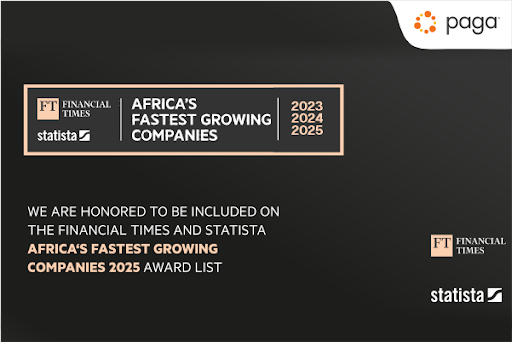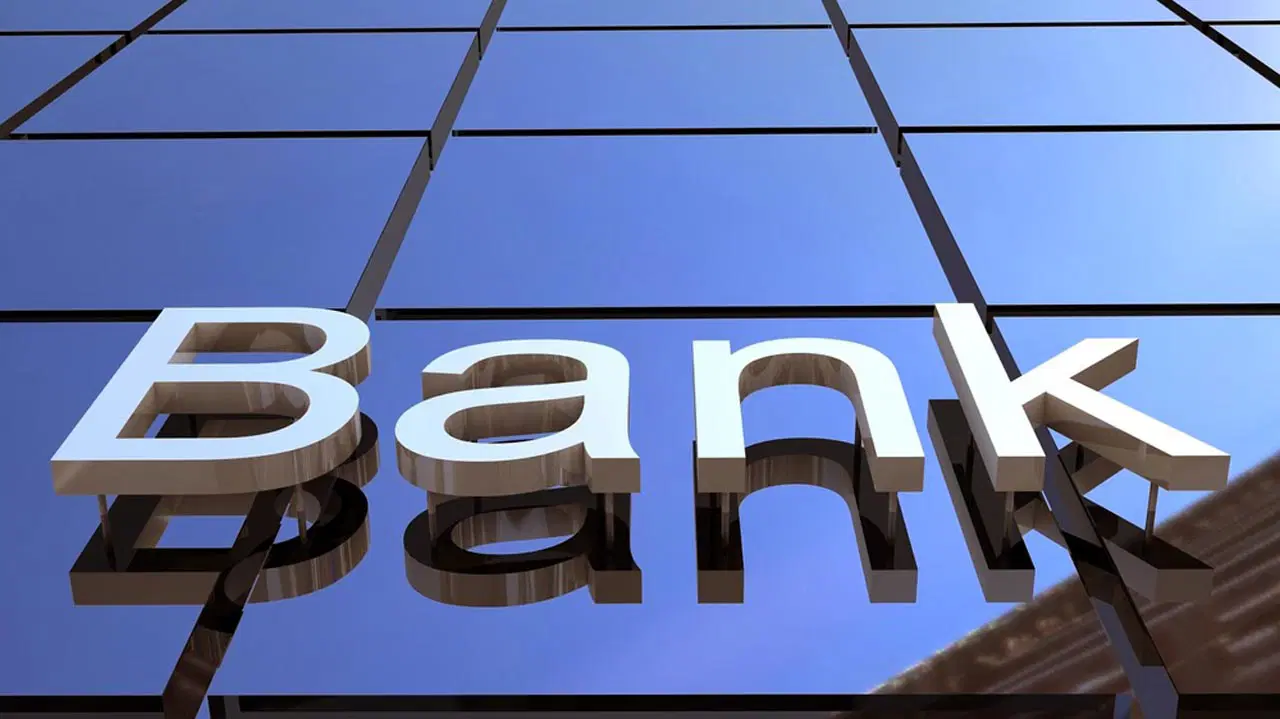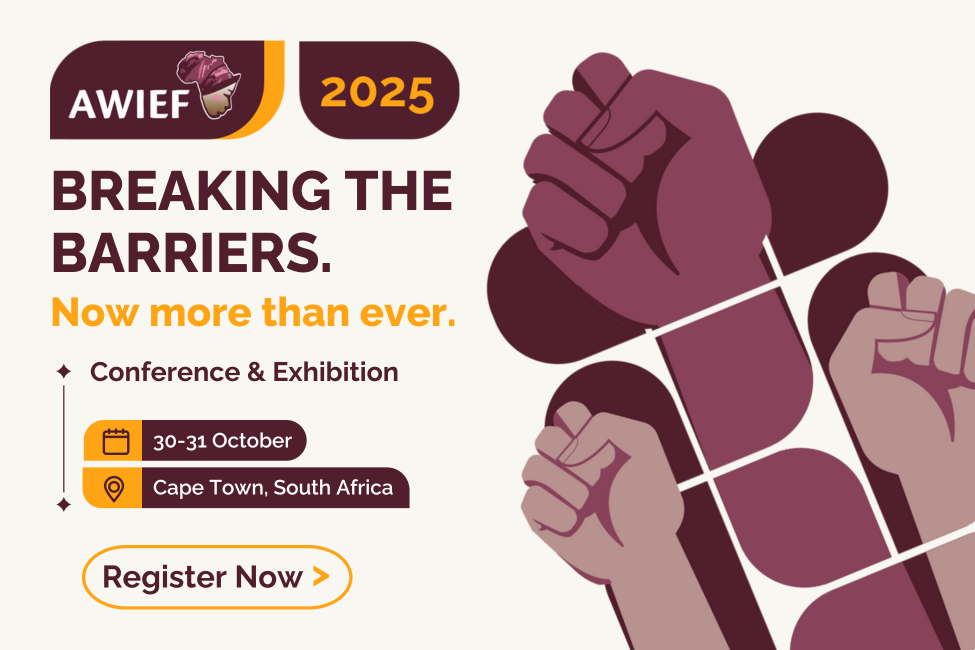Happy mid-week.
Some good news, some not-so-good news.
Let’s start with the not-so-good: one of my favourite apps, Lara.ng—a chatbot that helped Lagosians find their way around the city for free—has been temporarily paused. If you’ve ever tried to get around Lagos without losing your mind, you know Lara was clutch. I used it anytime I had to be somewhere new. I’ll take comfort in the fact that the data points collected over its eight years of operation will now be used to launch a new logistics platform, Motorspace.
Now, the good news: after 15 years, WhatsApp is finally on the iPad. It works with iPadOS features like Stage Manager, Split View, and Slide Over, which means you can chat, browse, and binge YouTube without juggling apps like a circus act.
Let’s get into today’s dispatch!
-Faith
Glo hits record low: Market share crashes to 11.9%
Lara.ng hits pause, pivots into a logistics platform
22 Nigerian banks joined PAPSS
Loan defaults in Kenya hit 20-year high
Newsworthy Number
World Wide Web 3
Events
Telecoms
Glo hits record low: Market share crashes to 11.9%
Nigeria’s third-largest telecoms operator, Globacom, aka Glo, has recorded a plunge in its market share, sinking to an all-time low of 11.9% in April 2025. Data from the Nigerian Communications Commission (NCC) shows that the operator lost over 100,000 subscribers between March and April of 2025, bringing their total subscribers to 20.6 million.
Why are users jumping ship, and fast? If you’ve seen a Glo user ranting about their network on X (Twitter) or TikTok, it is because the operator has had terrible service quality. Between January and May, the operator clocked 45 major outages, according to NCC’s incident tracker.
These outages are often caused by vandalism, power failures, and fibre cuts which leads to prolonged service blackouts. While other mobile operators like MTN usually fix infrastructure issues within 1–3 hours, Glo sometimes takes up to four days—it’s no wonder MTN added 3 million users between January and April 2025.
Glo used to glow. When Glo launched in Nigeria’s telecom market in 2003, it kicked the door down. While others milked ₦50-per-minute calls, the operator introduced per-second billing. Then came their chaos move: offering free SIMs in 2004, while competitors charged ₦2,000. Long before its competitors recognized that data was the industry’s future, Glo had begun offering 2.5G internet service to 70,000 users in 2004.
I’m going to hold your hand when I say this; it’s not exactly good news.Glo’s shrinking market share increases the risk of duopoly with MTN and Airtel commanding 86% of the market. When just two players dominate, there’s less reason to compete, innovate, or keep prices friendly. Guess who pays for it?
The reverse glow-up needs to be studied. If Glo wants to stay in the game, it needs more than a comeback. It needs to reconnect—fast. Otherwise, Nigeria’s once-vibrant third force in telecoms might just become another dropped line.
Fincra is co-hosting “Stablecoins & The Future of Payments” at Money20/20 Europe with Utila, Rail, Wirex & more. Join fintech leaders for insightful panels & networking. Limited spots – RSVP here.
Startups
Lara.ng hits pause, pivots into a logistics platform
Before ride-hailing apps took over and ChatGPT learned the danfo hustle, there was a chatbot that helped Lagosians find their way for free. You typed “From Opebi to Ogba,” and Lara.ng will tell you where to stand, what bus to enter, where to alight, and how much it would cost.
The platform was a text-based assistant for public transportation in Lagos, with a WhatsApp-esque interface. It had over 250,000 users just before Covid-19 hit in 2020. If you have tried to use Lara recently and all you got was silence, that’s because after 8 years of operation, Lara is on a temporary pause.
It isn’t a funeral; Lara’s just taking a nap. According to the report, Lara’s creator, Samuel Odeloye explained that the chatbot is currently undergoing upgrades. Despite Lara’s popularity, the chatbot never generated revenue—the business model “just didn’t stick,” he said.
A rebirth? Over the years of its operation, Lara.ng gathered data on commuter behaviour and patterns, fare estimates, transport routes, and mobility patterns across Lagos. This data is becoming the backbone of a new logistics startup.
Odeloye revealed his plans of building a logistics and last-mile delivery system, Motion Space, which will use Lara’s commute data and slash delivery costs by 50%—he claims. Motion space is built to help delivery hubs, courier companies, and vendors manage their logistics operations. He is building this startup along with Tobi Oyinola, who won a Guinness World Record for building the world’s smallest GPS tracker.
Zoom out: In what many users have called a ‘lifesaver’ in reaction to its temporary shutdown, Lara.ng wasn’t just giving directions—it was holding it down for the streets. For the JJCs, the broke, and the regulars. It made sense of Lagos’ chaotic commute route and asked for nothing back. Now that it’s taking a breather, people aren’t just saying “thank you.” They’re saying “we dey wait.”
Milestone achieved: 3x in a row! Celebrating 16 years of growth with our third consecutive appearance on the Financial Times’ Africa’s Fastest-Growing Companies list.
Read more.
Banking
22 Nigerian banks joined PAPSS; do they want to have the cake in cross-border payments too?
A TechCabal video that is going viral right now talks about how legacy banks are building fintechs that are quietly moving money across Nigerian streets. For years, it has been the whole schtick of fintechs to “bank the unbanked.” But with banks building technology to compete, they might slowly be beating fintechs at their own game.
Fintechs, however, have learned a new trick. Word on the street is that if you shake a tree—any tree—an African remittance app will fall down. This became harder to dispute after African fintech giants like Moniepoint started a remittance play after raising money. But, again, legacy banks are looking like they won’t let fintechs have that cake too.
22 Nigerian commercial banks—including four tier-1 banks—have joined the Pan-African Payment and Settlement System (PAPSS), a financial rail designed to make cross-border payments in Africa faster, cheaper, and local-currency friendly.
PAPSS isn’t the sexiest tech platform out there. It may lack the pizzazz we’ve come to expect from shiny fintech apps. But it works. It lets banks across 16 African countries settle payments instantly in local currencies—no need for dollars or third-party intermediaries. This cuts costs, reduces friction, and, frankly, makes intra-African trade less of a paperwork nightmare.
Nigeria now leads PAPSS adoption, ahead of Ghana. This recent surge is thanks in part to a new Central Bank of Nigeria (CBN) directive requiring all banks to onboard on PAPSS. The directive also makes it easier to process small transactions using already-submitted KYC documents—a big win for individuals and SMEs.
PAPSS needs big players to move the needle. And now, with 22 Nigerian banks in the system, it might finally get the momentum it needs to become the backbone of Africa’s payment future.
Nobody can say legacy banks are not doing anything about cross-border payments; that argument is now invalid.
Discover Paystack’s many security features and best practices for fraud prevention. Learn more →
Banking
Loan defaults in Kenya hit 20-year high
Yeah, it looks like Kenyan banks and their regulator, the Central Bank of Kenya (CBK), will be playing hot potato for a long time on who gets to clean up the credit mess in the country.
A new CBK report showed that the defaults on loans among Kenyans have reached a 20-year high. In Q1 2025, gross non-performing loans (NPLs) in Kenya’s banking industry hit 17.4%, making it the country’s worst NPL ratio since 2016.
If you don’t understand finance-speak, this means that it is getting riskier for banks to lend money to Kenyans. The tricky thing is that the CBK wants banks to lend money to Kenyans at decent rates to encourage spending. In turn, the government benefits from taxes. The CBK has been reducing benchmark rates for banks in hopes that they’ll pass it on to customers. But most of these banks have refused, risking fines from the CBK.
And we can’t really blame the banks; it is getting expensive to lend money in Kenya. Put yourself in their shoes: would you consistently loan money to your friend knowing that chances of recovery are slim? Your answer is likely no. Even consumer fintechs, which pride themselves in giving “fast” access to credit, are learning this. For example, Kenyan micro-lender Watu Credit’s revenue declined by 85% due to the high rate of bad loans.
This makes us wonder: will banks and the CBK ever see eye to eye on this issue? There are two ways to solve this credit mess in Kenya. First, the government can act as a guarantor and share lending risk with banks. Having skin in the game is the only way the government can command respect from banks. In its 2025 MSME policy, Kenya says it will offer state-backed funds like the Hustler Fund, to ease credit access for small businesses.
Second, the CBK and banks need to create better tools to assess borrowers. New models using mobile money data, utility payments, and other signals can help spot who’s likely to repay—even without formal credit histories. In countries like South Africa where the NPL ratio is low (5.2%), fintech and private sector companies have mostly banded together to build credit scoring tools.
For Kenya, it needs speed and banks need to weigh in on the issue. Unless banks and regulators come together, Kenya’s loan default plague will likely continue.
Hiring just got easier! Post your jobs on Jobberman for FREE and connect with 3 million+ qualified candidates. No fees, no stress – just smart, seamless recruitment.
Start here.
CRYPTO TRACKER
The World Wide Web3
Source:
Coin Name
Current Value
Day
Month
Bitcoin
$109,085
+ 0.13%
+ 15.70%
Ether
$2,640
+ 2.92%
+ 47.11%
Tellor
$51.32
+ 36.99%
+ 70.38%
Solana
$174.91
+ 0.95%
+ 17.14%
* Data as of 06.45 AM WAT, May 28, 2025.
This August, the Naira Life Con will bring together wealth builders, entrepreneurs, financial leaders, and everyday Nigerians to share their experiences with earning, managing, and spending money. Think: bold conversations, immersive workshops, and content tracks that hand you a playbook for building real wealth. Get early bird tickets now at 30% off only for a limited time. Download Report now.
Newsworthy Number
Safaricom, Kenya’s largest telecommunications provider, plans to invest nearly $500 million in artificial intelligence infrastructure across East Africa over the next three years.
Events
The Africa Women Innovation and Entrepreneurship Forum (AWIEF) will return to Cape Town on 30–31 October 2025, under the urgent theme “Breaking the Barriers: Now More Than Ever.” As backlash against gender equality threatens hard-won gains, AWIEF2025 calls for bold, collective action to advance women’s leadership in business and innovation. The two-day event will gather entrepreneurs, investors, policymakers, and changemakers from across Africa and beyond to accelerate progress for women on the continent. Register now or book an exhibition stand.
Join TechCabal for an exciting Mixer on May 30 as we explore the future of tech entrepreneurship in Africa. If you’re a founder, operator, or just curious about building in Africa, this event is for you. Come learn, share, and connect with others shaping the continent’s tech ecosystem. Register your interest here.
CargoPlug’s infrastructure makes it easier to ship goods from abroad
Fuliza, M-Shwari push NCBA’s digital lending past $7.7 billion
Written by: Emmanuel Nwosu and Opeyemi Kareem
Edited by: Faith Omoniyi
Sign up for our insightful newsletters on the business and economy of tech in Africa.
The Next Wave: futuristic analysis of the business of tech in Africa.
TC Scoops: breaking news from TechCabal
P:S If you’re often missing TC Daily in your inbox, check your Promotions folder and move any edition of TC Daily from “Promotions” to your “Main” or “Primary” folder and TC Daily will always come to you.
















